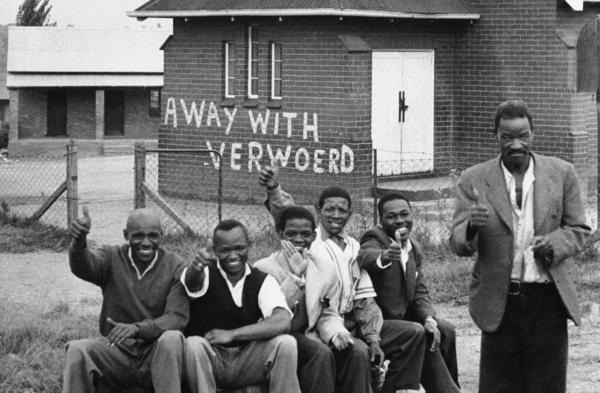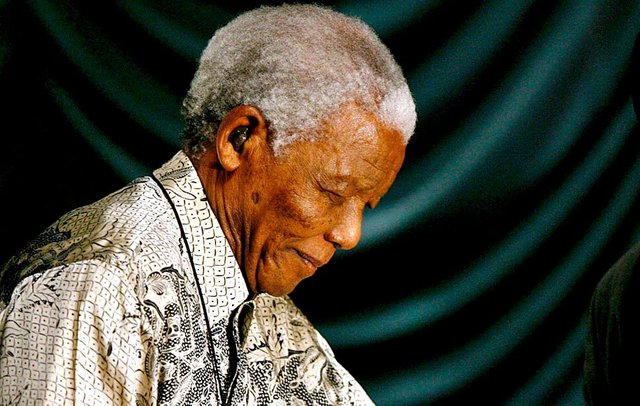1918: Nelson Mandela--the Hundredth Anniversary of His Birth
Nelson Mandela, the leader of the black liberation movement of South Africa, was born in a large Sheikh family in Transkei on July 18, 1918. In this world, Mandela has been through more than ninety years of life. In 2018, this is the hundredth anniversary of his birth. He led the blacks to fight for freedom and helped to bring about racial reconciliation and the elimination of South Africa's greatest social malaise. After being elected President, he followed the constitutional system and did not cling to power, setting an example for the new South African rulers. These are enough to make him immortal. Mandela, he is one of the greatest statesmen on the planet in the last hundred years.

(15 of the Most Inspirational and Uplifting Nelson Mandela Quotes true-stories)
In 1938, Mr. Mandela entered the University of Helberg to study. Because he boycotted the school election student representative activity, he was suspended his study. Then he went to study at Westland University and received a bachelor degree in law. However, he gave up the status as chief, attended the African national congress of South Africa, and participated in the founding of the youth league of the national assembly. In 1955, the national assembly held “South African People’s Congress” participated by South African colored, Indian and white. Of course, Mandela was involved. They published “Freedom Charter”, which required all South African had equal rights to citizenship and to recognize the rights of Africans to self-rule and national independence. Because of 156 people “treason case”, Mandela was judged, later acquitted of a charge. After national assembly was announced to be an illegal organization, he was arrested. Nevertheless, he never stopped struggling for his life and also freedom. When he was released, it was the beginning of his glory.

(Protesters demonstrate in Johannesburg, South Africa, on Aug.16, 1962, demanding Mandela's release after his second arrest. Mandela was sent to a penal colony off Cape Town, where he spent 13 years laboring in a quarry. (Dennis Lee Royle / European Pressphoto Agency)
In the victory of the second world war, blacks in South Africa did not gain more freedom. Instead, the ruling party adopted a more brutal policy of apartheid. Nazi policy of racial inequality in Europe failed, however, South Africa, which was part of the anti-fascist camp during world war ii, was resurrected. The apartheid policy of the South African authorities was carried out in the name of "the rule of law", in which the white council enacted a series of laws that would deny black rights and enforce segregation. The ANC's struggle began with ordinary strikes, rallies, and marches, but was immediately brutally suppressed. The white government outlawed the strikes and rallies by law. The ANC's work was forced underground.

(Members of the African National Congress at Orlando East, near Johannesburg, South Africa. The building in background has the words "away with Verwoerd" painted on it. Verwoerd was South Africa's Prime Minister and strong proponent of the racial policies which led to the mass shooting at Sharpesville. (Associated Press))
When strikes, rallies, and demonstrations of peaceful protest are violently suppressed, it is logical for the rebels to take a more drastic approach. Under Mandela's initiative, the ANC established the command center for the armed struggle, the "national spear" command, to set up the armed forces. Mandela was well aware that white authorities had strong national resources, and it was difficult for blacks in South Africa to overthrow the regime entirely by force.
Mr. Mandela and the ANC leadership took the minimum intensity of armed resistance. The use of explosions to destroy electricity, transport facilities and the psychological shock of white rulers would have forced the authorities to move to the negotiating table. And from the outset, Mandela abandoned the idea that "Africa is African" and an extreme claim to "bring whites back to Europe". This kind of rational attitude made Mandela, in any cruel condition, not to be angry with the ordinary white man. He insisted that all white and black people were equal, which was the claim of the South African host.
The 100th anniversary of Nelson Mandela's birth is worth remembering.
 (Protesters demonstrate in Johannesburg, South Africa, on Aug.16, 1962, demanding Mandela's release after his second arrest. Mandela was sent to a penal colony off Cape Town, where he spent 13 years laboring in a quarry. (Dennis Lee Royle / European Pressphoto Agency)
(Protesters demonstrate in Johannesburg, South Africa, on Aug.16, 1962, demanding Mandela's release after his second arrest. Mandela was sent to a penal colony off Cape Town, where he spent 13 years laboring in a quarry. (Dennis Lee Royle / European Pressphoto Agency)
100% of the SBD rewards from this #explore1918 post will support the Philadelphia History Initiative @phillyhistory. This crypto-experiment conducted by graduate courses at Temple University's Center for Public History and MLA Program, is exploring history and empowering education. Click here to learn more.